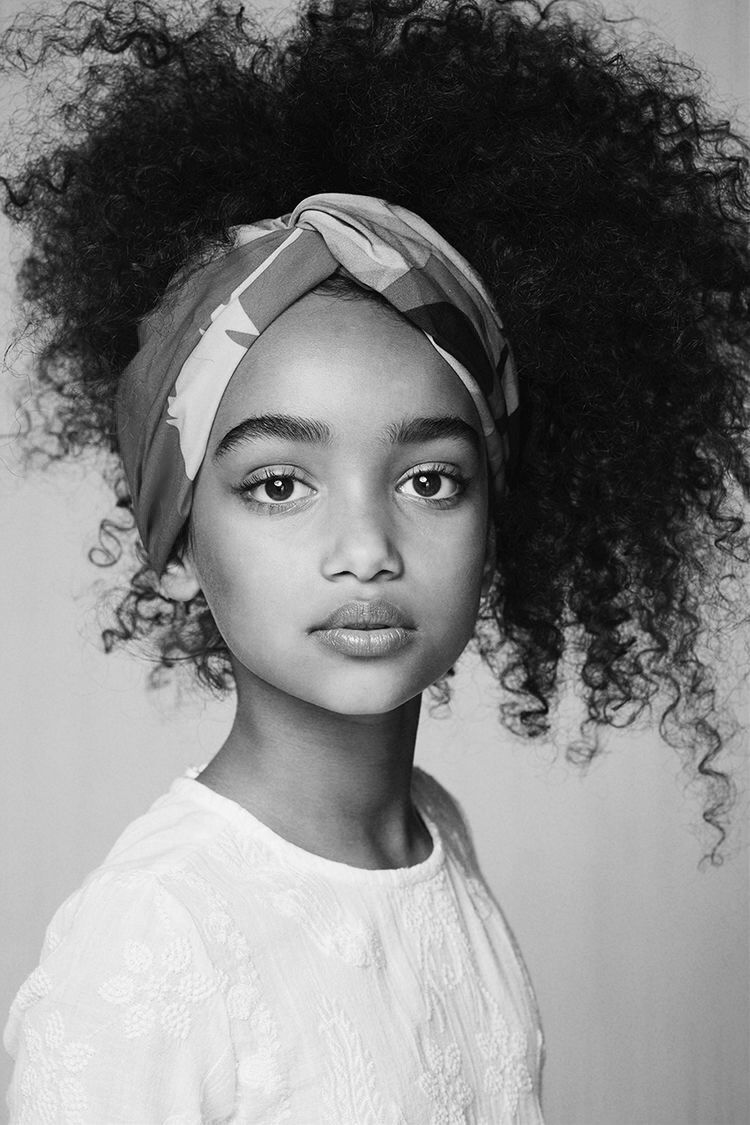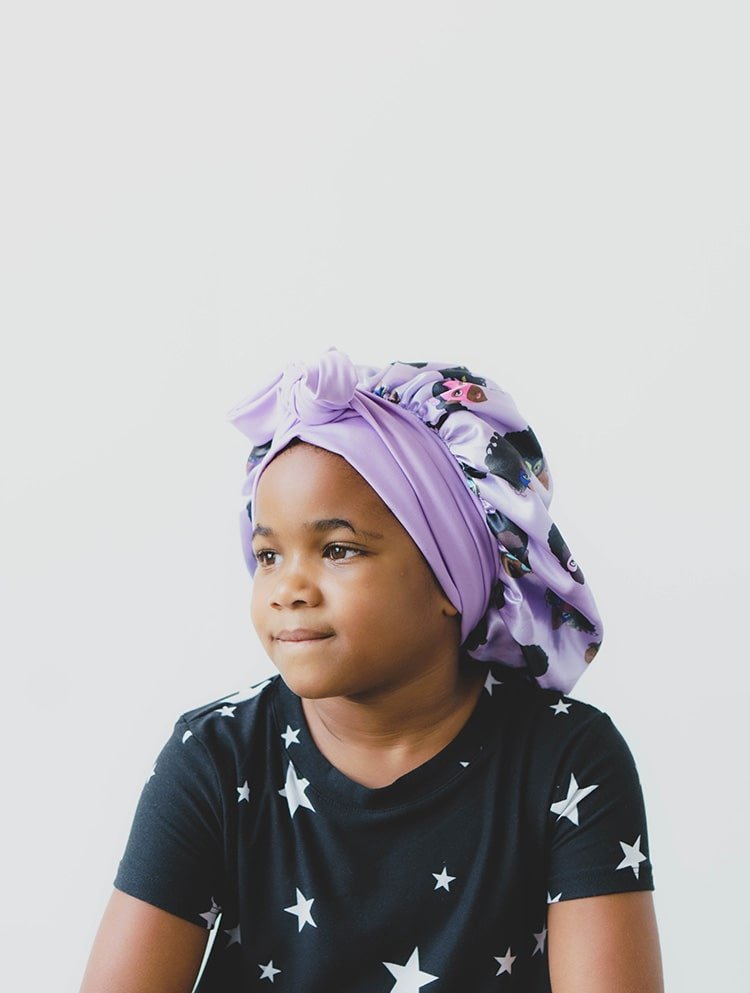Mental Health - 5 Practices to Help your Melanated Child Strengthen their Mental Health.

T oday- is Mental Health Awareness Day. It feels important to me to have positive dialogue related to Mental Health in the Black and Brown Community; this is the community our brand serves. I'm appreciative of the progressive mindset we are in as a community. With social media, we are beginning to understand and exchange experiences that undoubtedly impact our community. We have acknowledged that not speaking about these, whether through experiences, publicly or privately, only hinders us.
Mental Health within Black and Brown Communities historically has a negative stigma. Historically Black and Brown people are conditioned to believe Mental Health is not "our" issue. Our community often discusses mental health as if we're immune to many mental health conditions. This mindset is an attribute of our history of enslavement. As a people, we have been conditioned to work under large amounts of distress - adversely impacting our mental health. It wasn't until recently that meaningful discussions regarding that false perception started. So today, Mental Health Awareness Day - I want to deliver positive Mental Health practices to introduce to your child.
So let's dive into "5 Practices to Help your Melanated Child Strengthen their Mental Health".
Racism is a Mental Health Issue
Racism is a Mental Health issue as it produces trauma. And it is inevitably something our Children will experience in many shapes and forms. Children are the most vulnerable group, especially Those belonging to "minority" groups. As a Black or Brown Child parent, the most effective way for us to combat this vulnerability is through dialogue and positive imagery. Our children have access to many more things than ever before. As parents, we also have access to more resources discussing mental health. I recently read an article, "How Adults can Support the Mental Health of Black Children," written by Maryam Abdullah, focused on the phrase "Racial Socialization," which is a statement/demonstration of sorts to your children on how to behave in the world. It is powerful to create a "safe space" or an area of opportunity for your child to discuss their experiences and feelings with you, especially regarding racial topics.
It's unfortunate yet inevitable that as Parents of Black and Brown Children, we have to have the hard but necessary conversations with our children about Racism and the conditions in which we exist. Ultimately, providing our children with the tools to strengthen their mental capacity is up to us as parents.
Affirmations
Are you familiar with affirmations? Affirmations are short, powerful mantras you repeat to yourself throughout the day. Often, we unintentionally place limitations on our Children and reserve certain practices deemed for more appropriate age; more recently, performing affirmation with younger children was adopted. I saw a now-deleted video of a mother speaking affirmations to her son. Repeating mantras like; " I am Capable, I am Strong, I am Brave, I am Kind, I am Smart"; anything positive and uplifting to our Children(and ourselves) is worthy of incorporating into your child's daily routine. Affirmations help children articulate and acknowledge their strengths, value, and skills. It is a form of assurance. They are very empowering and straightforward to incorporate. I introduced this practice to my son, Jet, at two. I have Jet repeat after me before bed or occasionally throughout the day when we have downtime. I say things like, "You are funny, You are cool, You are Kind, You are Capable, You are Intelligent," anything I can think of that'll make him smile, and he repeats after me. Now four, Jet can say these things to himself unprovoked. This habit is a win-win because he often reminds me of my strength when I need the reminder most. Additionally, hearing Jet speak about himself in this manner is heartwarming.
Routines
This one is pretty short-and-sweet.
Routines aid in mental health by reducing stress levels; they take out the guesswork of what comes next. Any form of schedule - whether it's morning routines, bedtime routines, or even a homework routine- all aid in the positive mental state of your child. Additionally, they form healthy habits, further setting your child up for greatness. It offers a sense of control and security. Routines weren't incorporated in my household growing up; admittedly, this is something I struggle with incorporating. I've learned it's a process, and taking many small steps vs. one giant step is the most practical approach.
Dialogue
This one is a big one.
Healthy dialogue is essential to incorporate early on, regardless of your child's age. It may feel most comfortable to avoid discussing hard things at the moment, so instead, we dismiss them. That is not a healthy practice. Unfortunately, this approach is said to be shared in our culture. Introducing positive dialogue and examining your child's feelings and experiences creates a new dynamic for your parent-to-child relationship. When creating our "My Hero" design, I envisioned the pattern evoking a lot of healthy dialogue in many households. In particular, for my family, I imagined myself combing/brushing Jet's hair while discussing the Black / Brown superheroes on his Durag. I wanted this pattern to promote healthy dialogue discussing our culture and demonstrate Black and Brown children's potential. Healthy discussion allows us to build our children up, although the world around us may be trying to tear them down.
Representation
Representation helps increase self-esteem for Black and Brown communities, especially youth. Exposure through media representation can aid in reducing stereotypes of marginalized groups. Representation creates opportunities for our children to seek community support and validation. I believe we are seeing this through the use of Social media. The ability for our children to see others of similar backgrounds and cultures in various positions and activities symbolizes to them that they, too, can accomplish similar goals.
Self-Care
An increased self-awareness relies on self-care. To recognize emotional patterns, one must practice self-care, and your approach will look different compared to others. It's essential we understand what comforts and triggers our children. Triggers can significantly impact the state of our child's mental health. It's also necessary to identify and incorporate activities that reduce negative symptoms of a mental illness and include actions that bring pleasure or relaxation. When speaking about self-care, I believe it's necessary to address that although this article addresses the mental health of Black and Brown children, parents and caregivers must also prioritize their self-care. Whether you are a caregiver or parent, you must understand you cannot provide the tools to support your child's mental health if you are mentally unwell. In addition to tending to your child's mental health, take care of yourself. Know when to call for help, and although it's hard, prioritize yourself. The same steps above apply to you as well. Talk nicely to yourself, and surround yourself with people who inspire you. Think about it, if you are unwell, what impact does that have on your child? How we approach self-care trickles down to our children and skews our perceptions of ourselves. Self-care looks different for everyone, so it's up to you to determine what's practical and what isn't for your household. In the meantime, sit with this information and take care of yourselves.



Comments